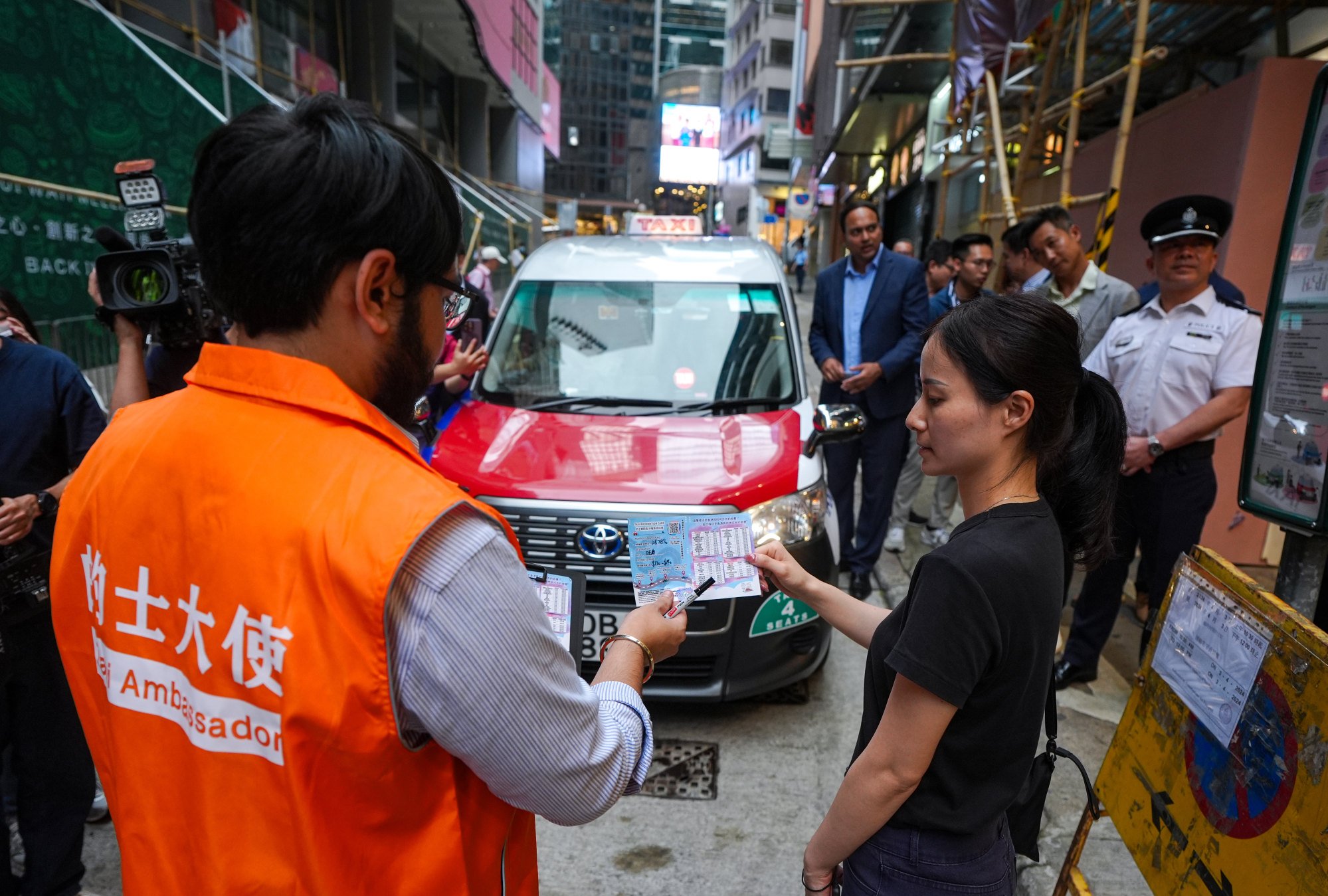
Hong Kong police recruit volunteers to help passengers avoid taxis overcharging
- Volunteers will help passengers at taxi ranks fill out information card detailing vehicle’s registration number, destination and estimated fare to help follow up on any complaints
- Three-month trial run will be limited to Lan Kwai Fong, but police will consider expanding scheme to other areas
From midnight to 5am on Saturdays and Sundays, a volunteer will help passengers at taxi ranks on Wellington Street and Stanley Street in Central fill out an information card detailing the vehicle’s registration number, destination and estimated fare before each journey.
“In case they have any complaints against the taxi driver, they can use [the card] as a means for complaints,” Terry Law Kwok-hoi, deputy district commander of the Central police district, said on Wednesday.
The scheme, which would begin this weekend, would operate on a trial basis in Lan Kwai Fong, the city’s most prominent nightlife area and a popular tourist attraction, before authorities would consider expanding it to other areas, Law said.
Volunteers would be recruited by the Central and Western District Road Safety Campaign Committee and some would be from a non-Chinese background, he added.

Overcharging by cabbies has come under the spotlight recently after some tourists took to social media to complain and police have carried out undercover operations to catch offenders.
Should Hong Kong legalise ride-hailing apps? Critics slam taxis, urge changes
Law revealed the force had carried out 32 operations targeting overcharging on Hong Kong Island in the first three months of the year, arresting five drivers, inspecting 12 taxis for suspected unauthorised augmentation of taximeters and issuing more than 140 penalty tickets.
Taiwanese tourists Mina Hsu and Zoe Chang, both 19, said the new measure would make them feel more reassured when taking taxis in Hong Kong.
While the pair described their ride from Repulse Bay to Causeway Bay as a smooth experience with a friendly driver, Chang said she had gone the extra mile to search how taxi fares were calculated in the city to ensure she would not be scammed.
“We will feel more reassured with the information card, as we aren’t familiar with how fares are calculated here,” Hsu said.

A cabby stationed near Lan Kwai Fong, who gave his surname as Chan, said the measure would better protect the reputation of law-abiding drivers.
“Everyone knows that some black sheep [of the industry] operate in Lan Kwai Fong, and we don’t want that,” Chan said. “We welcome this measure, as our business will benefit from more people coming to take taxis.”
But resident Joey Pathak-Dubey questioned the impact of the scheme given its limited scope.
“In my personal experience it’s very common for taxi drivers to overcharge in the [Lan Kwai Fong] area, but a lot of them are not at the taxi stands themselves,” Pathak-Dubey said.
More Hong Kong taxis to accept cashless payments under trial for new meter
The 25-year-old Indian software engineer said a taxi driver had once demanded HK$200 for a late-night trip from Hollywood Road to Caine Road in Mid-Levels last October.
“Friends of mine have had similar experiences,” Pathak-Dubey said. “It is especially more common for the drivers to price gouge if you clearly look like a foreigner.”
While the presence of the volunteers could signal to drivers that police were paying attention to the problem, the process of reporting overcharging would have to be simple to encourage passengers to expose offenders, he added.

